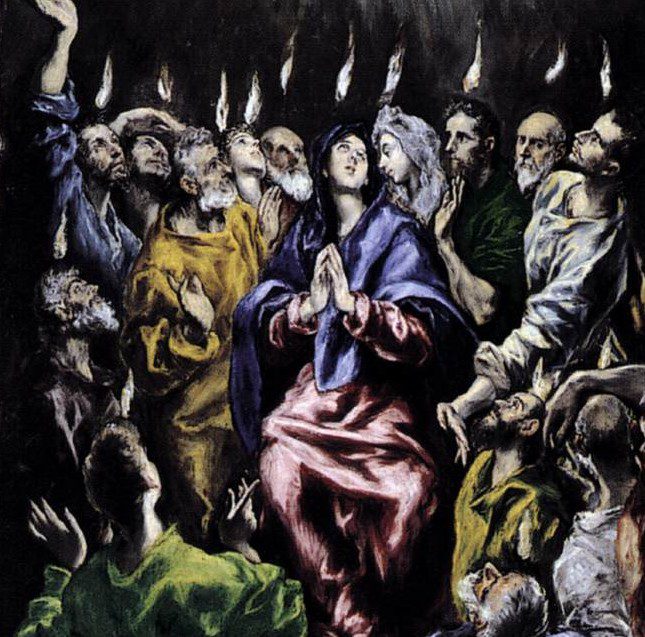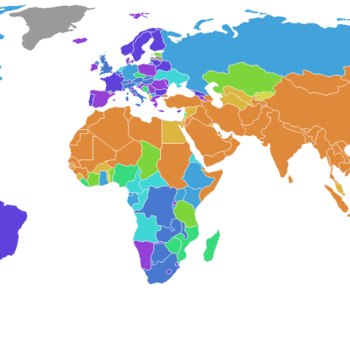
Yesterday was Pentecost, the great festival remembering God’s gift of the Holy Spirit. Thanks to my fellow Patheos blogger Rev. Jordan Cooper for posting some excerpts from a sermon by C. F. W. Walther, a founder of the Lutheran Church Missouri Synod, on Pentecost. In these profound words, we learn that Lutherans do believe that the Holy Spirit dwells within the believer. In fact, this is an important teaching that goes by the un-Lutheran-sounding name of “the mystical union.”
I quote the excerpts after the jump, but you’ll want to read also Rev. Cooper’s discussion. He relates Walther’s words to his understanding of sanctification. More controversially, he suggests that Walther is articulating a Lutheran form of the Eastern Orthodox doctrine of theosis. (I don’t know about that. Yes, Walther alludes to St. Athanasius’ words on the subject, but in saying that the Holy Spirit restores the “likeness” of God, he wouldn’t play that off against justification as the Orthodox tend to.)
See also David Jay Webber’s collection of quotations on the mystical union from the Lutheran confessions, a concept that refers also to Christ’s indwelling, and, indeed to the indwelling of the Triune God:
For while it is true that God, together with the whole fullness of deity which he always has with him, dwells in believers, he does not do so bodily nor is he personally united with them as is the case in Christ. (Solid Declaration VIII:70, p. 604)
Anyway, read what Walther says about the Holy Spirit after the jump.
Quoted by Jordan Cooper, C.F.W. Walther on the Mystical Union and Pentecost, Just & Sinner:
From C. F. W. Walther, From Our Master’s Table:
“For what are we celebrating today [on Pentecost]? It is the fact that God has not only united himself personally with our human nature in Christ, but now is uniting in grace with every single human being and wants to make his dwelling in his heart.” (p. 76)
“It is not enough for God only to have his work take place in us people and to fill us with his gifts, with his light, his power and his comfort, he wants himself, with his nature, to enter our hearts. It is not enough for God only to make people his priests, who come before him and serve him, but he also wants to make them his temples in which he serves them. It is not enough for God to someday receive his people into heaven where they shall look upon him, who is enthroned in glory, face to face, but he himself, already here, wants to make them into his heaven and establish his throne in them. (p. 75)
“So should God enter into the heart of a person, then, first, a great transformation of his nature take place. Indeed, it is impossible in this life for a person to be completely free of his sins, but should the Holy Ghost make it his dwelling, his heart must be utterly freed from its love of sins.” (p. 75)
.[Keep reading. . .]
Painting: detail from “The Pentecost” by El Greco [Public domain], via Wikimedia Commons













